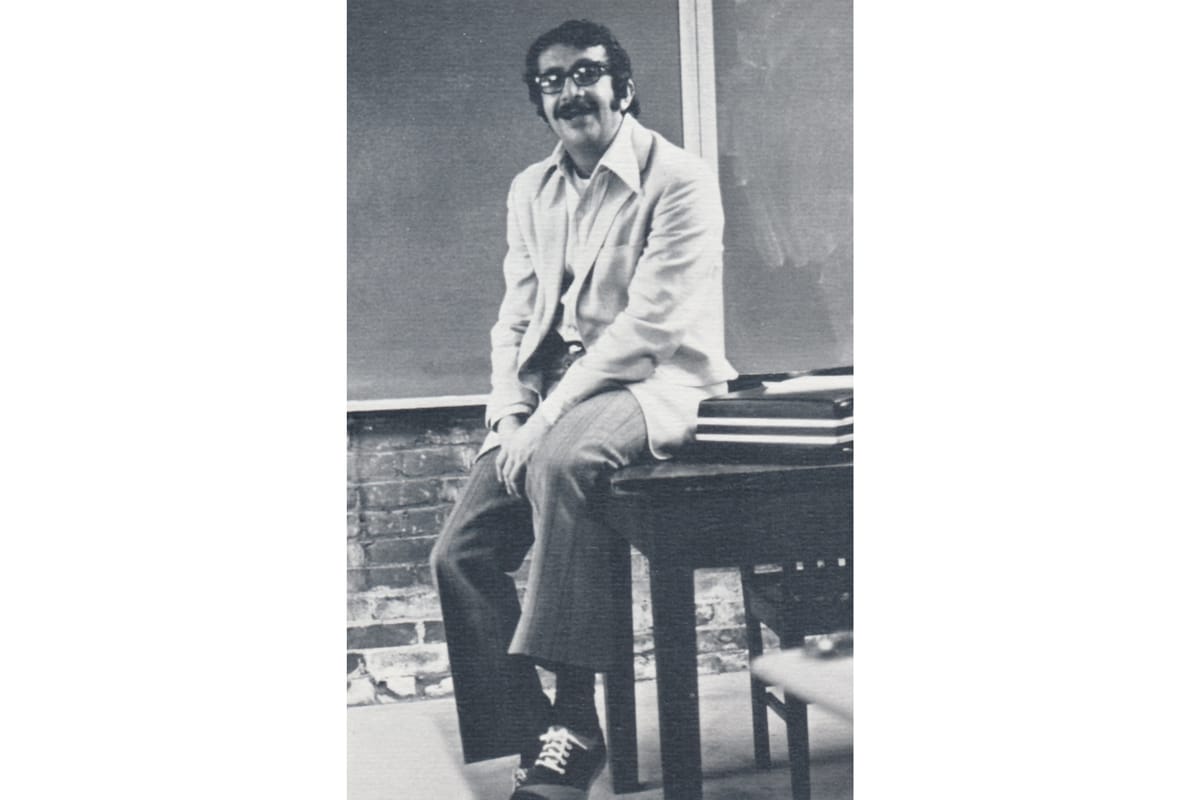Local Legends: A revolutionary professor
Iranian immigrant Mostafa "Paul" Rejai became a respected scholar on democracy and revolution during his time as a faculty member at Miami University.

In one of the most important meetings of World War II, “The Big Three,” Winston Churchill, Franklin Delano Roosevelt and Joseph Stalin, held their first joint conference from Nov. 28 to Dec. 1, 1943, in Tehran, Iran. Fittingly, a 12-year-old Mostafa “Paul” Rejai, who would eventually become an internationally recognized leading professor of political science, was living in the same city at the same time as the monumental conference.
Rejai was born on March 31, 1931, in Tehran, which was at that time part of the pre-revolutionary Imperial State of Iran, known as Pahlavi Iran. Unfortunately, there is very little information available about his early life in Tehran, though records do show him growing up with a sister, Nayer Rajai, and a brother, Hassan Ali Rajai.
In 1954, Rejai left Iran for Le Harve, France, where he boarded the ship that would take him to New York, ultimately heading to Santa Rosa, California. He completed his education while in California, graduating from Pasadena City College in 1957 and Los Angeles State College in 1959.
He immediately started a doctoral program at UCLA, with the goal of becoming a professor. Miami University hired him as an assistant professor in the summer of 1964, contingent on the completion of his doctorate.
It wouldn’t take long for Rejai to distinguish himself, achieving the rank of associate professor in 1967 and professor in 1970. By that time, he had already published a textbook on democracy and demonstrated his expertise on the study of revolutionaries with his book “Mao Tse Tung on Revolution and War.”
A prolific writer and thinker, these would be the first two of 17 total books, along with a plethora of articles and other works, Rejai would author, co-author or edit during his career, focusing on the study of leadership, political sociology, political change and revolution. Six of these books would be collaborations with Kay Porter Phillips, a University of Cincinnati-educated Miami professor of sociology and anthropology.
In addition to his writing and subject matter expertise, Rejai was also accomplished in teaching. A poll of Miami University students resulted in Rejai being named one of 10 “Outstanding and Effective Teachers” for the 1969-1970 school year.
In 1972, he was inducted into the Circle of Omicron Delta Kappa, a national leadership honor society with the goal of recognizing and encouraging “superior leadership and exemplary character.” That same year, Rejai was designated as an “Outstanding Educator” after being nominated by his department chair and was listed in "Outstanding Educators of America.”
Likely because of his positive reputation with students, Rejai was chosen to serve as a member of the Coordinating Committee for Campus Concern (CCCC), an organization created by President Phillip Shriver to facilitate communication between faculty and students and resolve disputes, during the campus unrest of 1970. The appointment was somewhat ironic when considering Rejai’s indifference to the event that directly led to the formation of the committee.
On April 15, 1970, students protesting the Vietnam War and other issues broke into Rowan Hall on Miami’s campus and initiated a sit-in protest. Eventually, the Ohio State Highway Patrol and 12 other law enforcement agencies from across the county were involved, deploying police dogs and tear gas against the protestors.
That night, Rejai was out dining with philosophy professor Richard Momeyer and his spouse, and some others. Leaving the restaurant, Rejai noticed what was happening on campus and, when he arrived home, called Momeyer asking if he was aware of what was going on and if he thought there should be a faculty observer.
Momeyer responded that he thought there should be a faculty observer and headed to the scene of the chaos. Rejai, possibly unperturbed due to the scale of the incident in relation to the political events he studied on a daily basis, went to bed.
Rejai’s work was recognized by Miami when he was honored with the title of “distinguished professor” in April 1983. He was the first recipient of this title in Miami’s history.
Although he officially retired in 1993, Rejai never gave up on his work. Rejai and Phillips were married Oct. 21, 1995, though they later divorced.
Rejai remained in Oxford until moving to Berkeley Square in Hamilton in 2008 and then to Woodland Country Manor in Somerville. He died on Jan. 14, 2011, and was buried in Darrtown Pioneer Cemetery, also having a cenotaph in the Miami University section of Oxford Cemetery.
A memoriam published for Rejai by Miami University quoted a 2002 interview that had been conducted with him in which Rejai said, “For me work is pleasure…there is nothing negative about it. I know that I could have done anything I wanted with these past eight years, but for me it is not enough to just live, you have to leave something behind. These books which I am writing, they are here forever, they are not going to disappear.”
Rejai saw to it that the study of political science work would continue, establishing an endowed professorship at Miami University.
Brad Spurlock is the manager of the Smith Library of Regional History and Cummins Local History Room, Lane Libraries. A certified archivist, Brad has over a decade of experience working with local history, maintaining archival collections and collaborating on community history projects.



